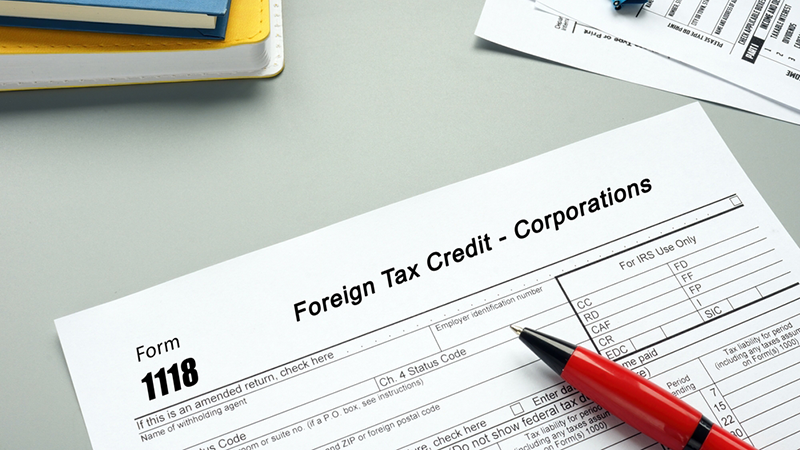Form 1118 - Foreign Tax Credit for Corporations
U.S. multinational corporations often pay taxes to foreign countries on income earned outside the United States. Taxes paid to other countries (not...
While you may be well-acquainted with the traditional W-2 forms that provide details of your salary, it's important to keep up with the ever-evolving IRS landscape. Introducing the intriguing newcomer: the Form 1099-DA. Although it may not be currently in circulation, the anticipation surrounding its arrival in 2026 has piqued the curiosity of both cryptocurrency enthusiasts and tax professionals. So, what's all the excitement about this novel form? What secrets lie within its contents? In this article, we will embark on a journey into the realm of digital assets and gradually uncover the purpose of the 1099-DA, exploring each box step by step.
The 1099-DA form is a brand new tax form in the U.S., specifically designed for reporting cryptocurrency transactions. It's not yet in use but is expected to be issued by cryptocurrency brokers and exchanges starting in 2026, for transactions made in 2025.
Think of it as a specialized 1099 form just for your digital assets, similar to how you receive a 1099-MISC for freelance work or a 1099-K for payments received through payment apps like Venmo.
What it does:
You might be interested to read about Florida's SB 264: Exploring Foreign Property Ownership Laws
The creation of Form 1099-DA in the United States is a direct response to the need for accurate reporting of cryptocurrency and digital asset transactions for tax purposes. This form has been developed due to various important factors:
1. Lack of dedicated reporting for digital assets: Currently, there isn't a specific IRS form dedicated to reporting crypto gains and losses, making it challenging for individuals and the IRS to track them accurately.
2. Infrastructure Act mandate: In 2021, the Infrastructure Act categorized crypto exchanges and trading platforms as "brokers," requiring them to report customer gains and losses to the IRS annually. Form 1099-DA serves as the reporting format for them.
3. Improved compliance and revenue collection: The IRS aims to improve taxpayers' crypto-related tax compliance and increase revenue collection. Form 1099-DA simplifies reporting for individuals and provides the IRS with more accurate data to identify under-reported income.
4. Streamlining tax reporting: With a dedicated form, individuals should have a clearer picture of their crypto transactions and potential tax liabilities. This could potentially simplify tax preparation and reduce errors.
The implementation of Form 1099-DA faces potential challenges, including:
Although the full impact of Form 1099-DA is yet to be determined, its introduction represents a crucial stride towards enhanced regulation and transparency within the cryptocurrency market in the United States.
You might be interested to read about Prepare for the Corporate Transparency Act: Reporting Requirements
Any investor who utilizes a platform classified as a crypto broker will be required to fill out a 1099-DA form. This means that potentially millions of investors using centralized and decentralized exchanges, as well as certain wallet providers, may receive this form.
The purpose of the 1099-DA form is to report capital gains and losses specifically related to cryptocurrency. Therefore, individuals who have engaged in activities such as selling, trading, or spending crypto on any of these platforms can expect to receive a 1099-DA form.
For active investors who use multiple exchanges, wallets, and other platforms, it's important to note that they may receive numerous 1099-DA forms within a single year. This can add complexity and intricacy to the reporting process for investors.
If you have concerns about this or other tax filing forms, contact our experts and we will be there for you! Our CPA firm has over 30 years preparing taxes for investors and multinational companies around the world.

U.S. multinational corporations often pay taxes to foreign countries on income earned outside the United States. Taxes paid to other countries (not...

Are you a foreign investor or multinational looking to understand US inbound tax planning compliance? Tackling the US tax system requires clarity on...

As the owner of a foreign corporation with U.S. business activities, you have specific tax filing obligations in the United States. One of these...
.webp)